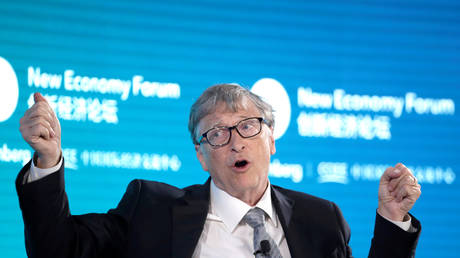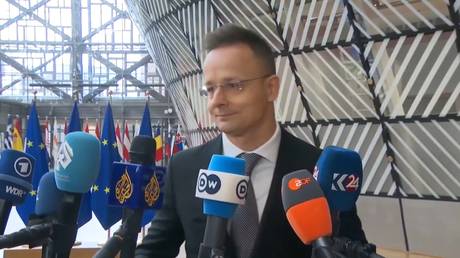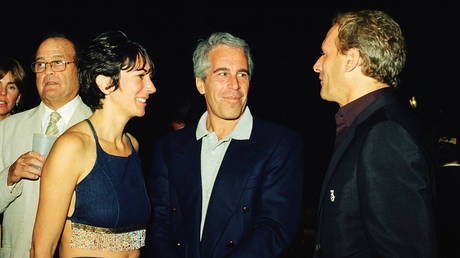
Bill Gates brushed off Covid-19 conspiracy theories about him wanting to track people through microchips just as he is poised to become the World Health Organization’s biggest donor.
“It’s almost hard to deny this stuff because it’s so stupid or strange that even to repeat it gives it credibility,” Gates said on numerous conspiracy theories swirling around him since the coronavirus crisis began and he became an outspoken champion for a vaccine. The Bill & Melinda Gates Foundation has just recently pledged $1.6 billion to vaccine alliance group Gavi, which will use the money to immunize children in poorer nations.
Conspiracy theories linking Gates to the origins of Covid-19 or arguing he wants to track citizens through microchips under the guise of ensuring they are vaccinated against the virus were mentioned over a million times before May, according to Zignal Labs, a media analytics company.
The theories continue to swirl around social media and a poll from Yahoo News/YouGov from late last month even found 28 percent of respondents believed Gates wanted to use the coronavirus as an excuse to track and store their information. Among Republican respondents, that percentage was even higher.
“I’ve never been involved in any microchip type thing,” Gates said, calling the poll results “concerning.” He did admit “data systems” would be a good idea to track a Covid-19 vaccine, but “there’s no chips or anything like that.” Gates has thrown his support behind a “national tracking system.”
Concerns and theories about Gates’ influence have only intensified as his standing in the world has increased. Already the second richest man on the planet with a net worth of about $100 billion, he is about to become the largest donor to the World Health Organization, a position previously held by the US before President Donald Trump cut ties with the international group over their handling of the pandemic.
In the last two years, the Bill and Melinda Gates Foundation has accounted for over 12 percent of the WHO’s budget, which equates to approximately $530 million, according to Devex. It is followed by Gavi alliance (8.18 percent) that the foundation also sponsors. The US gave slightly more in that time frame with payments equalling around $890 million.
Lawrence Gostin the director of WHO’s Collaborating Center on National and Global Health Law, told Devex the potential of a private foundation becoming the largest donor to the organization could be “transformational.”
“It would enable a single rich philanthropist to set the global health agenda,” he said.
Like this story? Share it with a friend!




